

A-Z Artist Index Compilations Record Labels Media
Help Us! Contact Us Resources Timeline


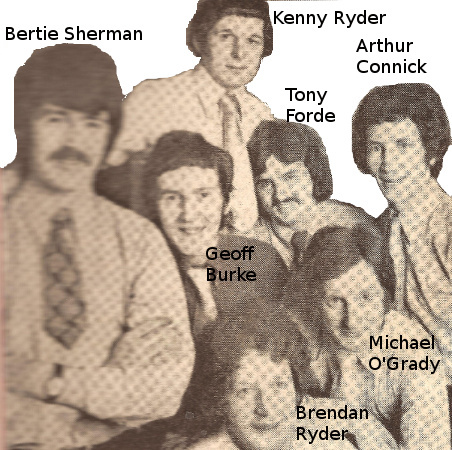
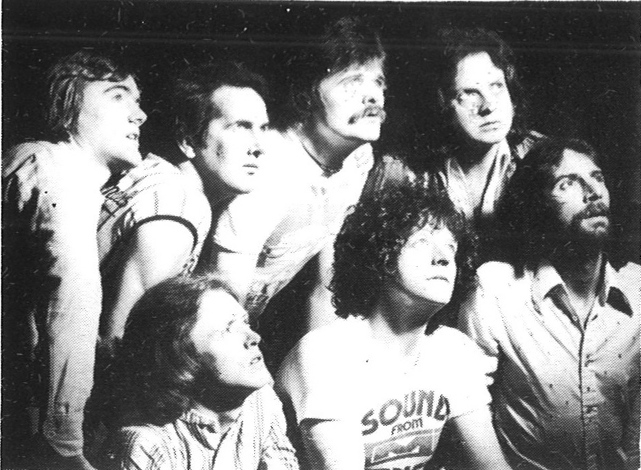
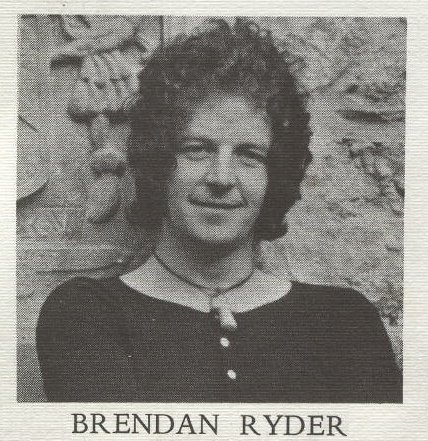
Bio:
By the early '70s, the
heyday of the showband had passed, and many bands had transitioned to playing country
music, arguably the most popular live music in Ireland at that time.
Tweed were one of the few pop-oriented bands to emerge from the showband
scene who successfully managed to play the ballroom circuit in Ireland during
the '70s while avoiding country music for the most part. Tweed were one
of a small handful of bands, like Chips and The Memories, who
managed to survive in this world through the quality of their live sets, faithfully
reproducing the pop hits of the day while also performing their own material.
Tweed was formed in Kilkenny in 1971 by Brendan and Kenny Ryder. Several
band members came from the defunct Nomads showband. The initial
seven man lineup was joined in 1972 by Johnny Scully on trumpet, yielding
what was to be a stable lineup for the next few years (see 1972 lineup above).
Initially advertising themselves as playing a wide variety of musical styles,
covering all the bases -- including country and western -- this quickly changed
to a pop only format. Unlike their contemporaries, Tweed retained the brass
section associated with the showband format, which gave their live show extra drive,
and they were capable of the kind of driving rhythms that made Rob Strong's
Plattermen such a live draw at the time. They quickly became
a popular live attraction.
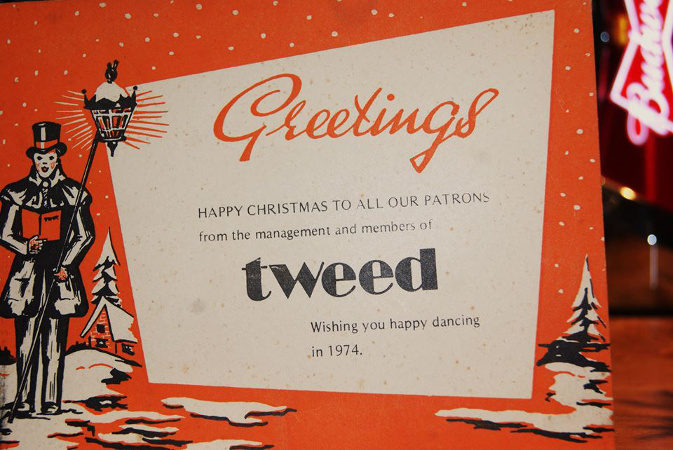
In October 1974 the band expanded to include Barry Woods (keyboards) and Gay
Brazel (ex Real McCoy). Gay took over the lead guitar
duties when Kenny Ryder left to form his own Kenny Ryder Superband in 1976.
Pat Kelly replaced Tony Ford on bass and Dave Hallisey replaced Bertie Sherman.
In June 1981, drummer Jeff Bourke was replaced
by Seanie Ryan (ex Kenny Ryder Superband, Kim Newport Band). By 1983,
only Gay Brazel and Johnny Scully were left from the mid-70s band. All other original
members had gone, including both Ryders.
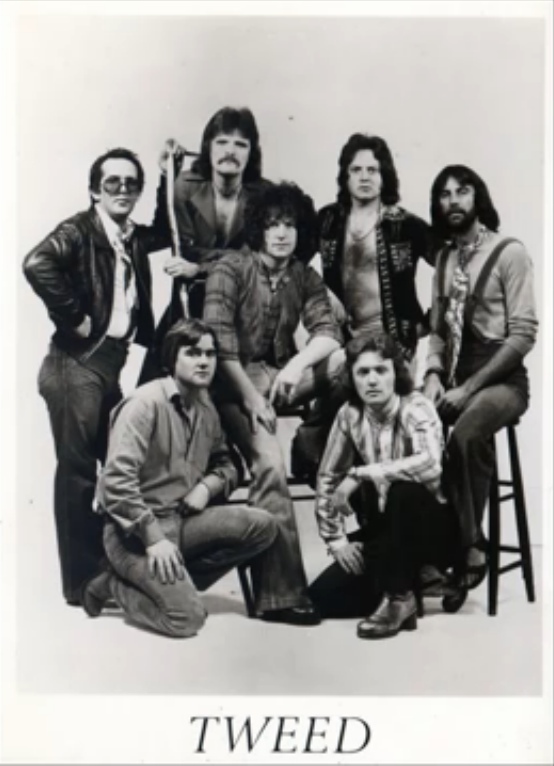
Tweed in the '80s
The band's live popularity was not reflected in the singles charts,
however. Tweed averaged a
single a year over their first 10 years, on various Irish labels.
Their musical style varied over these releases,
from glam-tinged rock in the early '70s, to pubrock in the late '70s and pop in the '80s.
In his book "77: The Year of Punk and New Wave", Henrik Poulsen mentions them in the entry
for the East Coast Angels but says he doesn't consider Tweed worthy of
inclusion in his book. This seems a little harsh. Most of their '70s singles are worth
picking up. 1979's "No Restrictions" was their entry in the National Song Contest,
losing out to Cathal Dunne's "Happy Man". "Why Don't You Spend the Night" was their
first chart hit, peaking at #16 in the Irish charts in May 1982.
There's also a live performance from this period recorded for RTE TV,
an hour long "Best of the Bands" special from 1981 which may still exist in
the RTE vaults (don't hold your breath).
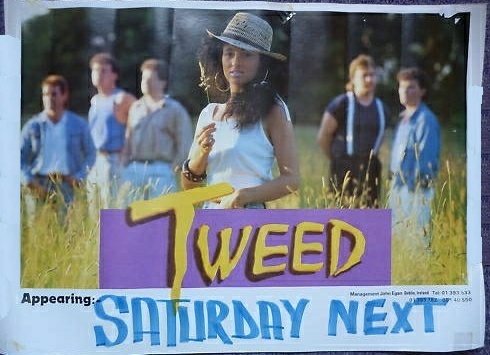
A version of Tweed still gigging by the late '80s.
I'm not sure exactly when Tweed called it a day. There seems to have been s
band using the name Tweed into the late '80s with a couple of circa 1989
releases, one credited to Miranda & Tweed. Gay Brazel's name in the writing credits
establishes the link to the original band...
The real original band was persuaded to reform for a charity event in Kilkenny in 2014
which was so successful that the reformed band decided to hit the road again
with founding members Brendan Ryder, Michael O'Grady, Tony Ford, Arthur Connick,
Dave Hallissey, Johnny Scully and Gay Brazel, and new recruit Brian Doran on drums.
This coincided with the release of the bands first album which collects (re-recordings of?)
all their old singles as well as some previously unreleased tracks ( their label
rather unhelpfully describes this CD as 'Folk/Country Rock'.
Kenny Ryder meanwhile still lives in Thurles and plays across the country with his
own band, the Knight Ryders.
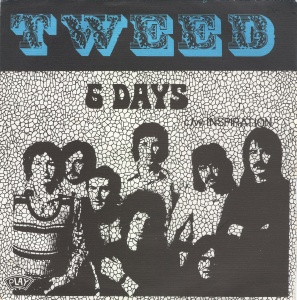
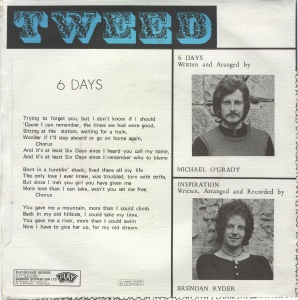
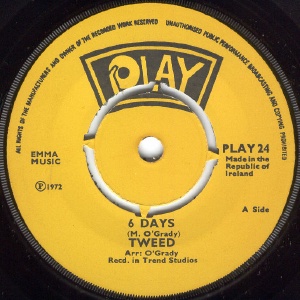
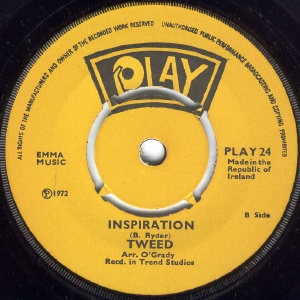

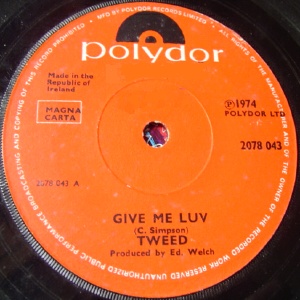
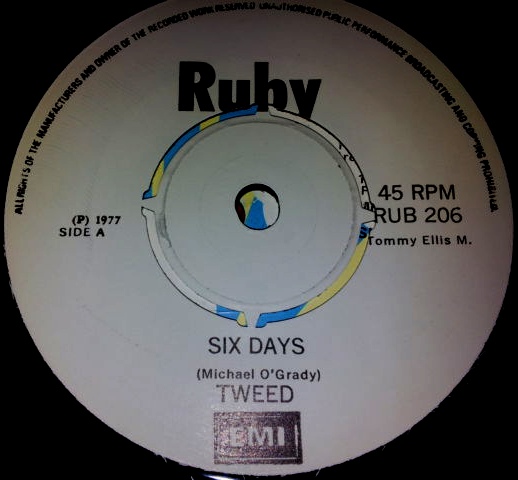
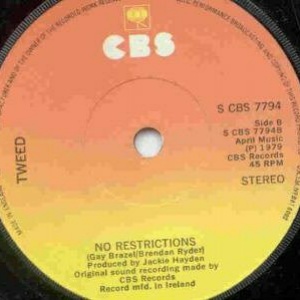
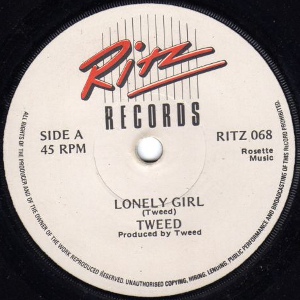
Notes: A1+B1 recorded at Windmill Lane, produced by Tweed and Tony Faulkner. B2 recorded at Bean Street Sudios, Waterford.
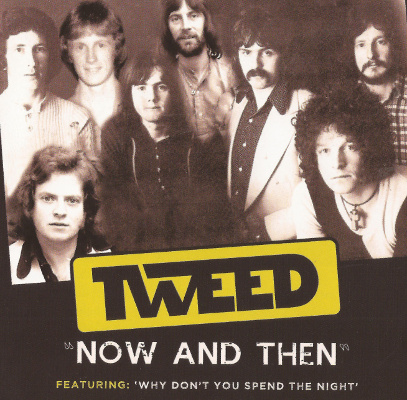
We need your help to correct and/or complete this entry. If you can provide more information about this band, have scans, photos or any other memorabilia we can use, or spare copies of any releases, then please get in touch.
